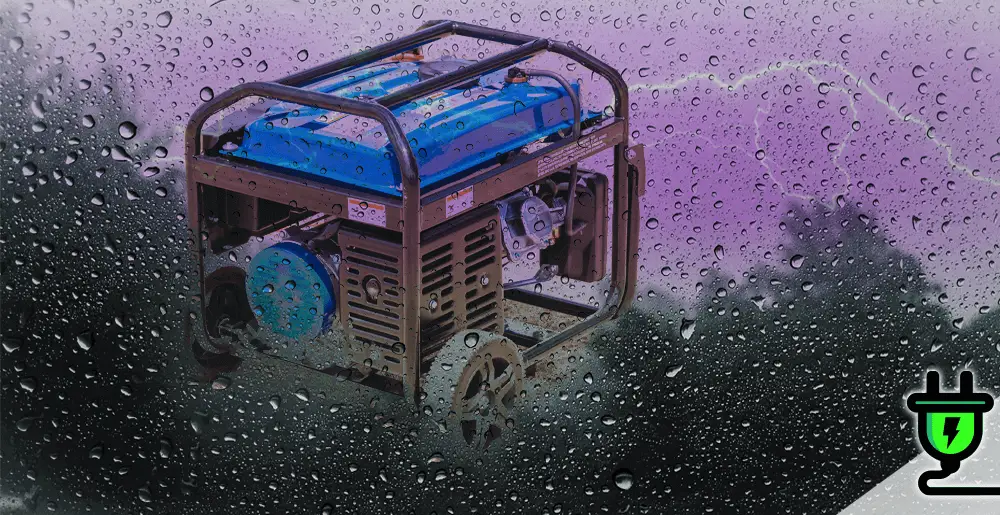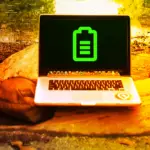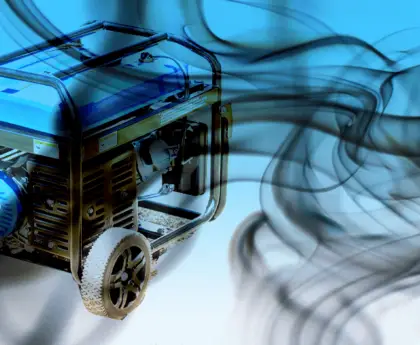If you’re using a portable generator outside, one of your first questions might be, can a portable generator get wet? After all, rain is a common issue when you’re working outdoors.
Never allow a portable generator to get wet, especially the power outlets. Generators convert fuel into electrical voltage, which if exposed to moisture could result in an electrocution. If you need to use one outdoors in wet weather, have a canopy over it to keep it dry.
If you’ve ever owned a portable generator, you know that they can be a real life-saver in an emergency. But have you ever wondered if it’s safe to use one if it’s raining or snowing?
In this guide, we’ll explore why a portable generator cannot get wet. Then we’ll touch on the best ways to protect it from the elements if you must use one in wet weather. Let’s get to it!
Why You Should Never Let A Portable Generator Get Wet
Portable generators are not designed to be exposed to wet weather. The simple truth is, moisture and portable generators don’t mix. And while portable generator manufacturers go to great lengths to engineer safety measures into their products, they don’t include any moisture protection.
By running a generator in the rain, there is a high risk that it could electrocute someone. And if water finds it’s way into the outlets, it can cause the electricity to jump around unexpectedly, which is exceptionally dangerous.
Do Portable Generators Have Any Safety Measures to Protect from Getting Wet?
Most modern portable generators utilize GFCI outlets. GFCI is a circuit breaker specifically designed to cut off the power if a shock situation is detected.
If you find yourself suddenly caught in a downpour with your portable generator, the GFCI outlet is the only thing protecting you from being electrocuted. So you’ll need to take some extra precautions to keep yourself and the generator from being damaged.
How Can I Protect my Generator From The Rain?
Portable generators are intended to be used in a dry environment, or elevated and under a cover if running in a wet environment.
And because portable generators are not intended or safe to run indoors, it means you’ll need to find a way of protecting your generator and keeping it dry in wet weather.
For example, you can use a canopy, a tent, a plastic shed, or some other form of ventilated enclosure. There are plenty of kits available for protecting your generator. DIY enclosures are also an option.
Fact is, for most people a generator is at its most useful when the weather is wet, because this tends to be when power outages occur. If you don’t want to be left without power, you need some sort of shelter for your generator so you can run it whenever you need to.
How Can I Protect Myself When Using a Portable Generator in Wet Weather?
First, make sure that your hands are dry whenever you are operating the generator. Don’t duck under its canopy during a rainstorm and try to operate it while you yourself are soaked through.
Also, wear rubber gloves and rubber shoes as this will help reduce the risk of being electrocuted. And be sure to plug electrical appliances directly into the generator using the manufacturer’s supplied cords or extension cords that are grounded (3-pronged).
In fact, inspect the cords first before using to make sure the outer protective layer is not cut or abraded. And make sure the cords are rated in watts or amps for the intended use.
Finally, only run the generator when you absolutely need to. Use it wisely and sparingly, and keep safety of yourself and others in mind.
What Are The Risks to the Generator?
Getting your generator wet while it’s running can damage the machine. If any of the electrical components, including the control panel and the outlet panel, get wet, your machine may cease working.
Water has a way of finding itself into any crevice. And it can ruin the outlets and wiring of your generator, as well as seep into the fan or alternator causing serious damage.
While a portable generator can be repaired, why take the risk? If you must run the generator in a wet climate, take proper precautions.
Can You Run an Inverter Generator in The Rain?
Inverter generators are no more water proof than a traditional generators, and should be kept away from moisture.
Just as a traditional portable generator converts fuel into electricity, so too does an inverter generator. The only difference is the way it converts fuel to electricity.
Bottom line here is, an inverter generator is a safety hazard if it gets wet.
Final Thoughts: Can a Portable Generator Get Wet
So, the quick and simple answer to “can a portable generator get wet” is no, it must not get wet. This is true whether you are operating it or simply storing it.
Portable generators are a great way to have power during an emergency, but it’s important to remember to keep them dry. Make sure you have a canopy over the generator if you’re using it outdoors in wet weather.
And never allow the generator to get wet, especially the power outlets. That could result in an electrocution.




